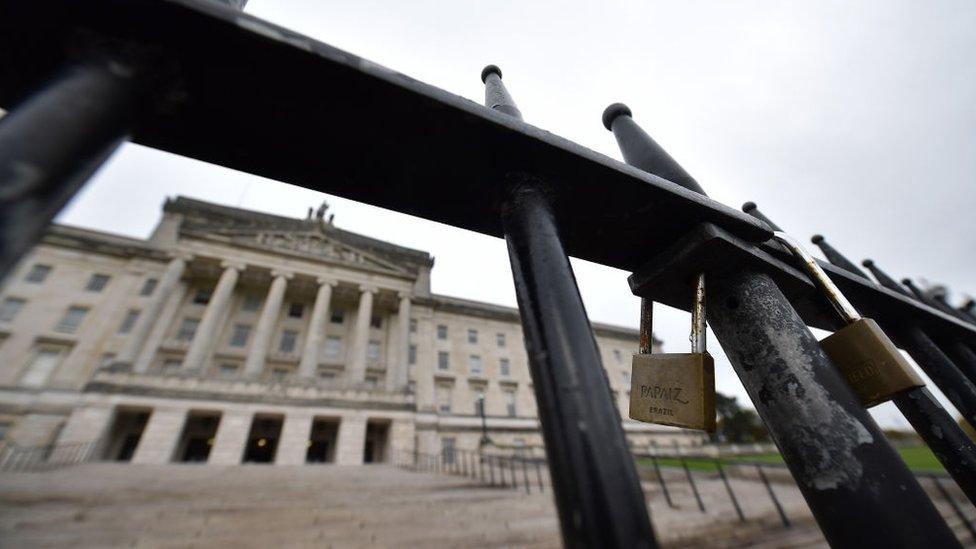Stormont budget cuts will cause 'irreversible damage' to services
- Published
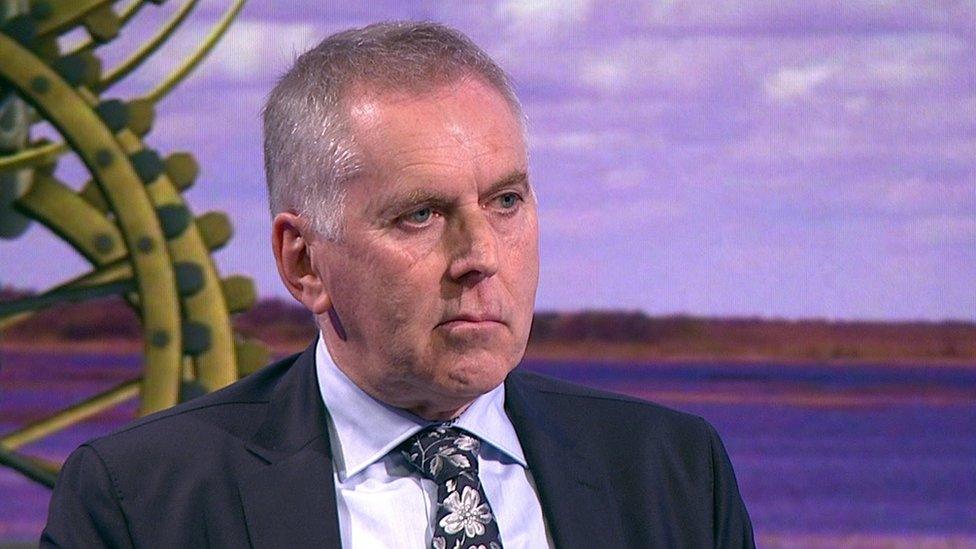
Sir David Sterling said "irreversible damage" would be done to services
The level of cuts that may be required by Stormont departments are "undeliverable", the former head of the NI Civil Service has said.
The Northern Ireland Secretary Chris Heaton-Harris will set the budget in the absence of ministers in a functioning Northern Ireland Executive.
Some departments are expected to see cuts of up to 10%.
Sir David Sterling told Sunday Politics that "this is the worst that it has been".
'Fundamentally undemocratic'
"I think public services and departments are collateral damage in the struggle the government is having to get the institutions up and running again," the former head of the civil service said.
He added: "In real terms, the cuts will be very large in many areas. And as I've said before, and many of my former colleagues have said, this is fundamentally undemocratic, it's fundamentally unconstitutional."
Permanent secretaries have been running Stormont departments since October due to the Democratic Unionist Party's (DUP) boycott of the institutions over post-Brexit trading arrangements for Northern Ireland.
But with none of the nine department ministers in place the powers of civil servants are severely limited.
They can only implement policies previously agreed by politicians and their ability to react to changing circumstances is negligible.
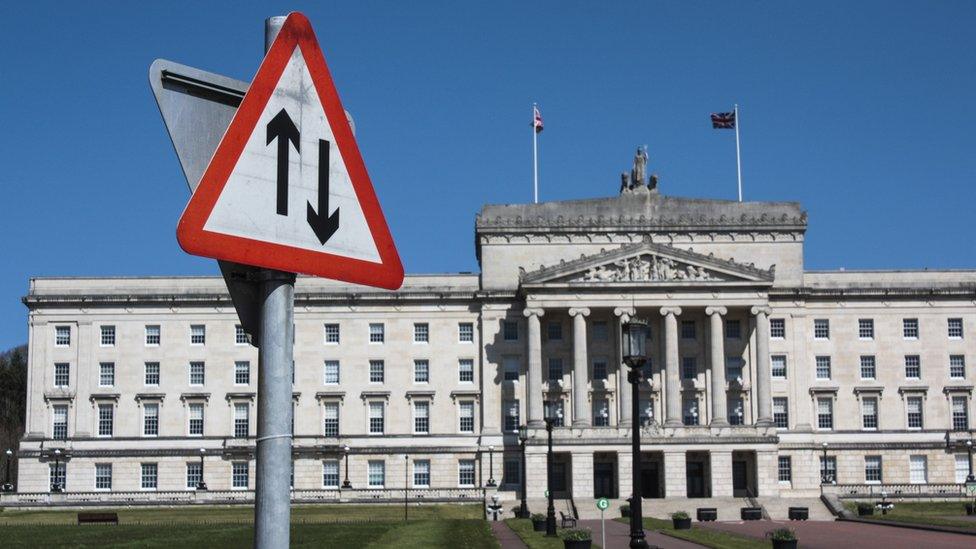
Permanent secretaries have been running Stormont departments since October
Sir David said that public services can not be switched on and off like "the flick of a switch" and the cuts will have long-term affects.
"There are public service bodies, there are charities all over the place now, who are having to plan to lay people off, capacity will be lost. Irreversible damage will be done," he said.
Permanent secretaries have been asked to find massive savings ahead of the budget.
Last week, a leaked Northern Ireland Office (NIO) briefing paper suggested that money could be raised by bringing in water charges, raising tuition fees and prescription charges.
The UK government report suggested that Stormont is losing £700m a year by failing to charge for things such as water and prescriptions.
Last month, the Northern Ireland Fiscal Council, an independent budget watchdog, said departmental spending was due to fall by 6.4% in real terms in 2023-24.
However, if the Department of Health, which is the biggest department, is protected it would mean deeper cuts in other areas.
DUP MP Gavin Robinson has said that unless there was a "total recalibration of how Northern Ireland is funded" the situation would "only get worse".
Sinn Féin's Conor Murphy has described the forthcoming financial arrangement as a "punishment budget".
It was revealed in February that services provided by Northern Ireland Executive departments faced cuts of at least £500m in cash terms in the new financial year.
Inflation will increase the effects of those cuts.
Related topics
- Published5 April 2023
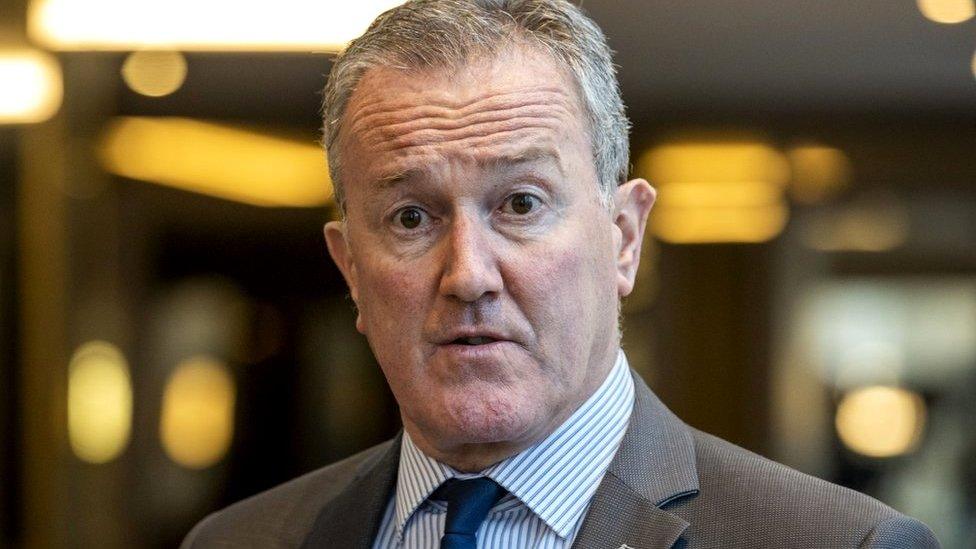
- Published31 March 2023
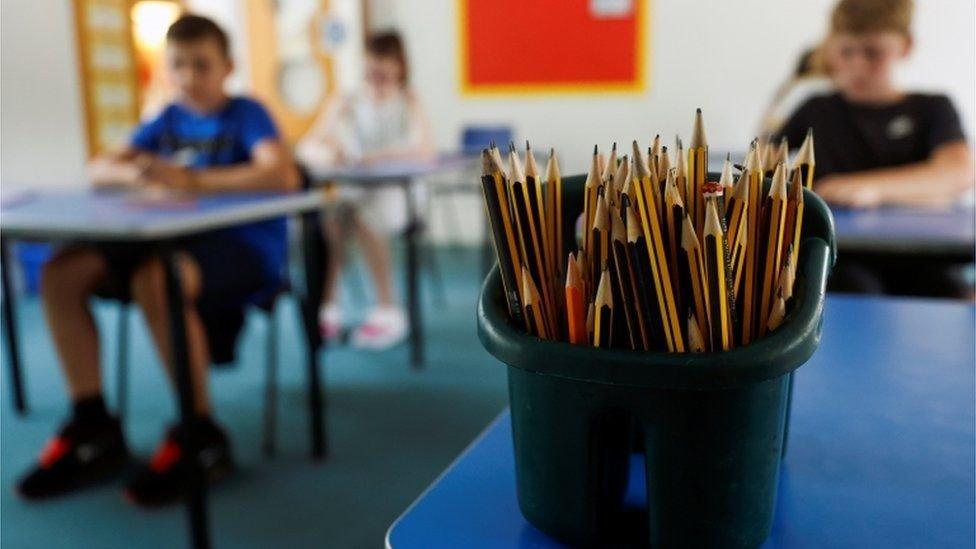
- Published28 March 2023
